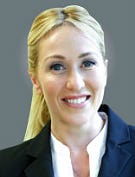Kaseya Survey: Many MSPs Identifying by Vertical Specialty
Data points to per-user pricing, niche specialization and automation as keys for high-profit MSPs.

Kaseya, the IT infrastructure management solution provider, on Thursday released the results of its 2019 MSP Benchmark Survey. The eighth annual survey focuses on Kaseya partners that have achieved average annual monthly recurring revenue (MRR) growth over 20 percent, which it calls its “Bionic MSPs.”
There’s nothing in the report that will shock channel professionals, but the data does give a more nuanced perspective into the business of managed service providers (MSPs). It examines how trends like managed hybrid and multicloud environments, security concerns and the need for backup and disaster recovery (BDR) solutions are impacting providers’ search for high-margin ways to deliver infrastructure.
Taunia Kipp, global EVP of Kaseya IT management solutions, says the first thing that struck her about this year’s respondents was how many self-identified as a vertical-specific IT solutions provider rather than as an MSP.

Kaseya’s Taunia Kipp
“Instead of identifying themselves as an MSP, if perhaps they tend to serve the health-care market, they might identify themselves as health care IT provider instead of as an MSP,” says Kipp. “We saw that in our registrations for the Connect conference too … they might identify themselves as an SMB [or] health care or education [provider] or something like that, when really we look at the data and we’re like, ‘Wait a minute, they’re actually a managed service provider.'”
This falls in line with some of the survey findings, which say that many MSPs are scaling up cloud services for customer segments that match their expertise and experience, and as a result, enjoying a margin range almost double that of MSPs overall.
We sat down with Jim Lippie, general manager of cloud computing at Kaseya, to dig deeper into the 2019 findings.
Channel Futures: One of the highlights from this year’s survey is that “bigger doesn’t mean better” in terms of MSP size, and that a third of your fastest growing MSPs have fewer than 10 employees. What advantages does a smaller shop have in the market?
Jim Lippie: I’m aware of a number of MSPs that are in the 10-employee range and are highly profitable. They can leverage automation to generate higher profit margins than an MSP that has a lot more employees … It’s not about the number of employees. It’s about how you …
… service the client, how you deliver results for that client and the tools that you have at your disposal to actually get more leverage out of your business.

Kaseya’s Jim Lippie
If you’re still a “body shop” at 10 employees and still using those old metrics of [I need an engineer for every eight to 10 customers], then size won’t be an advantage. However, if you are taking a step back and looking at how you can do more with less, how you can maximize automation and tools that are out there to drive profit margin and service more clients with fewer people, then that’s the way to do it if you’re going to be a smaller MSP.
CF: The report says that these Bionic MSPs are offering more services across the board, yet to Taunia’s point earlier, partners are starting to listen to the market and move away from broad general IT services toward more verticalized or niche offerings. How do you narrow your focus and also offer more services?
JL: You have to separate the two. Your total addressable market in your niche is one thing. You become an expert in that specific vertical, but that doesn’t limit you from a service offering standpoint. You should be looking to offer as many types of services to that specific niche as you possibly can because that allows you to drive more revenue and more share of wallet.
So a small business client of an MSP has a finite IT budget and can only spend so many dollars. Your objective as an MSP is obviously to deliver them with the results they want, but also to capture as much of that IT spend as you possibly can. Ultimately, if they have other providers in there, they’re fighting for the same share of wallet. Oftentimes these days you’ll find providers will offer multiple different solutions, and they’re trying to edge you out. If you allow as an MSP more vendors to come in and take a piece of the pie, eventually they might just box you out altogether.
CF: That ties in a bit to the report’s advice to sell on value rather than on price. That can be a difficult pivot to make, and a difficult pricing strategy to figure out. What do you say to partners who don’t see the benefit in making that switch in business models?
JL: Look at the market trends. When the history of MSPs is told, you will most likely find that device-based pricing will end up being the most profitable pricing model for MSPs. But it’s not going to ultimately be the model that wins out because the market is pushing MSPs to go per-user. Over time, per-user pricing is going up, and per-device pricing is coming down. That’s market pressure. There are new MSPs coming in every single day that are just trying to appeal to the average customer, to say, “I know you had XYZ MSP for five years, and they’re charing you per-device. That’s got to be really expensive for you. I’m going to come in and take care of everything and be per-user, and we can save you $1,000 a month.”
That type of activity, those types of conversations are driving the market to the per-user model — and will continue to do so.
About the Author
You May Also Like


